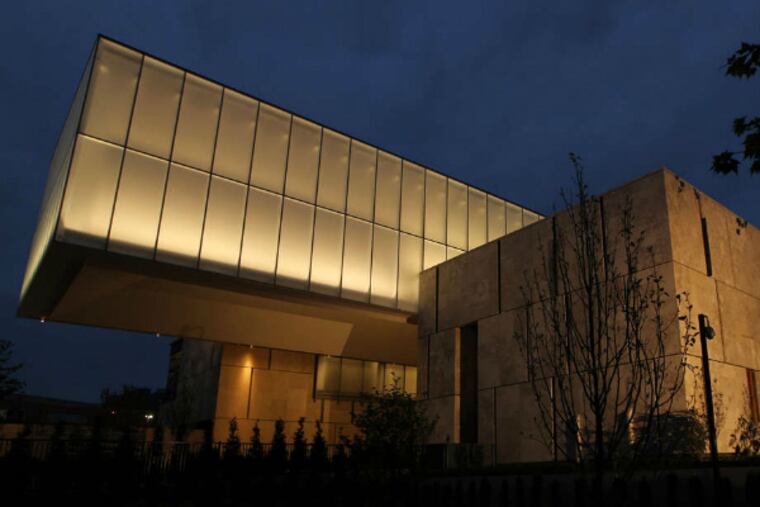New Barnes documentary tells Foundation's side of the story
Former Comcast anchor Art Fennell spent three years on the film

SO YOU THOUGHT the long-running soap opera surrounding the Barnes Foundation and its priceless collection of paintings by Renoir, Matisse, Cezanne, Picasso and others was finally over, right?
Guess again.
In an apparent effort to get the last word in the bitter feud that pitted those who wanted to bring the gallery to Philadelphia (including Daily News publisher Gerry Lenfest) and those who wanted it to remain in Lower Merion, the Barnes Foundation has commissioned a documentary giving its side of the story.
Called "Barnes and Beyond: In the End, Truth Prevails," the hourlong film purports to unravel the "untold story of how lies and legal battles were overcome." Directed by former Comcast anchor/executive producer Art Fennell, it's the Barnes' answer to the controversial 2009 documentary "The Art of the Steal," which makes the case that the governmental and philanthropic interests that moved the prized art collection from Lower Merion to Philadelphia violated the wishes of the late Dr. Albert C. Barnes.
It took Fennell, who left Comcast last year, three years to put together the hourlong film, which opens with these words: "There are two sides to every story. This is the other side."
The seeds of the dispute over the prized collection were sown years ago, when Barnes, an eccentric art collector, was deciding what would be the fate of his artwork after his death. Among other things, he stipulated in a trust that the Barnes Foundation was to remain educational, that the pieces not be lent out or sold and that the artwork remain on the walls of the mansion in Lower Merion that he had built for them. The collection was to be open to the public, only a few days a week. Barnes left Lincoln University, an historically black college, in charge of appointing four of the five trustees of the foundation.
Following Barnes' death in a 1951 car accident, foundation officials tried to abide by Barnes' wishes, but the institution eventually fell on hard financial times, and talk began in earnest to move the priceless collection to Philadelphia.
Forces that felt that a move was in violation of Barnes' wishes pushed back. Things didn't really settle down until the Barnes' triumphant 2012 opening on the Benjamin Franklin Parkway.
But even now, emotions on both sides remain high. When informed about the new Barnes-produced film, a longtime member of the Friends of the Barnes Foundation advocacy group laughed ironically and said, "Oh boy!"
"Coming from a bunch of liars, that really breaks me up," Evelyn Yaari added Friday. "It's very curious that they are still needing to get that message out there."
The Barnes held a VIP screening of the film last week. When I asked the Barnes' former board chairman why at this point there was a need for a documentary, he, too, was passionate.
"Once it was done, the building was up, the building was paid for and all of that, we commissioned them to do a film and to talk to the people who were involved in it and let them tell the story," said Bernard Watson, who left the board in 2014. "That had never happened before."
"I am telling you, we wanted the facts there from the people who are involved in it," he continued. "All of the people told it in their own words. That's what you never had before. [With] no commentary. . . . What you heard was from the board members who made the decisions. What you heard was from the president of Lincoln [University] who was there when all of this happened. That's not hearsay. That's from their mouths. That's what the film is about."
That message went over well Thursday night. Audience members, including a large contingent from Lincoln University, applauded the film enthusiastically.
That was followed by a question-and-answer session featuring current Barnes board members who at times spoke movingly about their efforts to save the Barnes.
"We've done something wonderful here in Philadelphia, but not just for us," said Stephen J. Harmelin, the board's treasurer.
Barnes officials still are figuring out how to get the documentary distributed.
Something tells me that even though the Barnes is now an established entity on the Parkway, it's going to be awhile before Philadelphians forget this saga - if ever.
"The passions on this run so deep. It's almost like the Hatfields and the McCoys," Fennell pointed out. "Maybe I'm wrong, but I just don't think that the gap will ever be bridged."